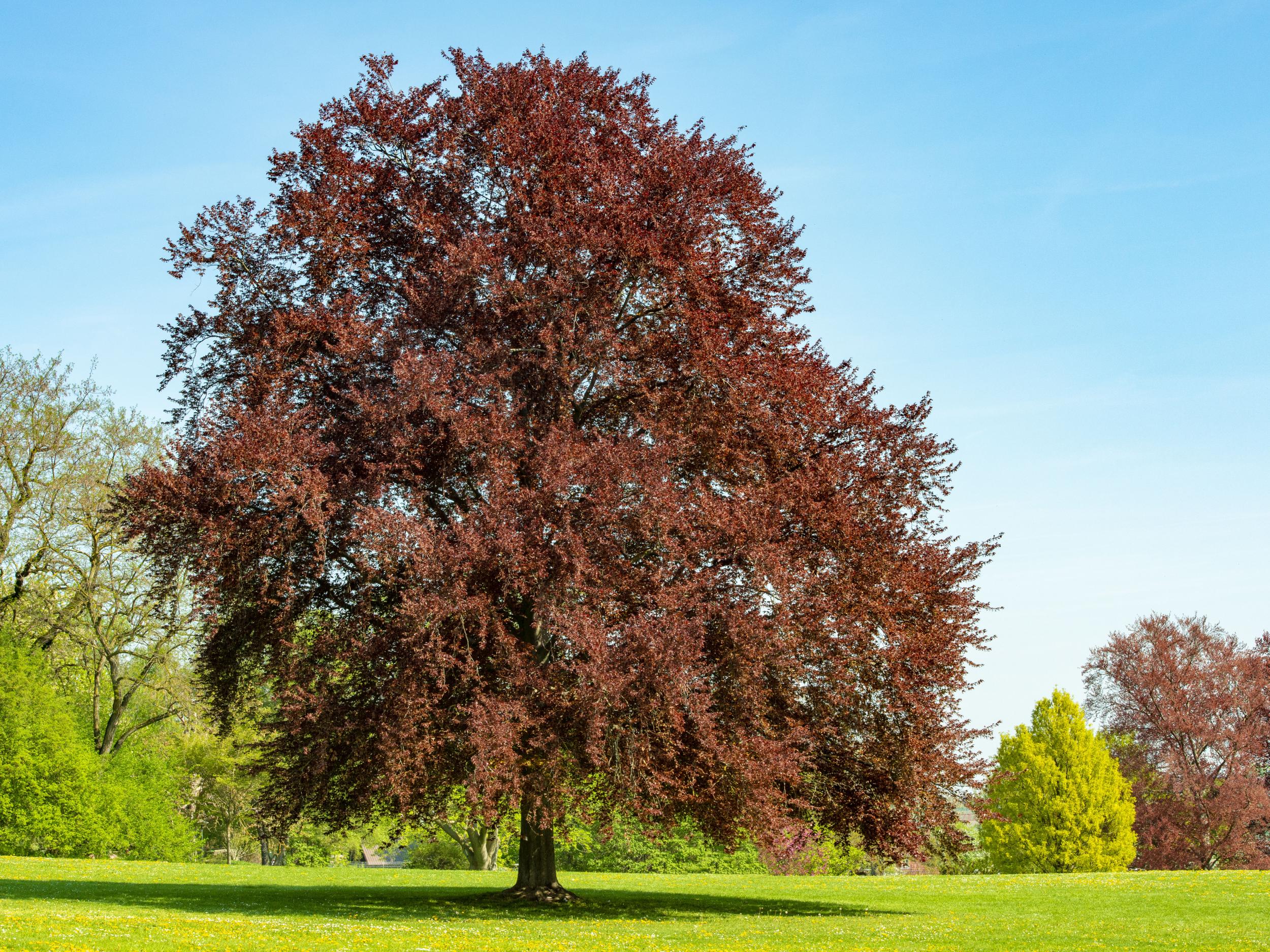The daily commute had blinded me to the beauty on my doorstep
In the latest of his reflections about place and pathway, Will Gore looks with new eyes on a towering copper beech and recalls the death of a neighbour


Until June of this year I was your bog-standard commuter. I left my house at the same time each day (usually a few minutes later than I should have done), caught the same train from my provincial town to London, and returned home every evening by the same route.
I made those journeys five days a week for eleven and a half years, looking at the same sights as I ran down the hill to catch the 7.26 (and as I trudged up it 12 or 13 hours later); and glimpsing the same fields and buildings from the train window. Seasons came and went but the routine rarely altered.
It’s remarkable what you no longer really see when you get into a pattern like this.
A few hundred yards from my home, on the way to the railway station, there is a copper beech. It is a giant, dominating the front garden of a large detached house with vast bay windows of grey stone. The trunk, thick and gnarled at the base, splits into four sturdy limbs about twelve feet up, each of which twists and separates further, disappearing into a broad canopy that shines variously green, purple, bronze and ochre from spring to autumn.
On the garden side, branches hang lower than they do over the road, where growth is stunted by the lorries which pass regularly beneath the tree’s lilting crown. The house behind the beech is handsome but austere, Victorian or perhaps Edwardian, a scaled-up version of the cosy terraced properties which line the road a little further into town.
I knew the man who lived there a little, a familiar face from the congregation of our parish church. When my first son died just hours after being born, he was one of several church acquaintances from whom we unexpectedly received letters of condolence – understated but heartfelt letters of a sort that seem to come so naturally to older generations and that gave me comfort at a time of hideous grief.
When my third child arrived, I seemed quite often to meet this man in the street at weekends when I was out and about with the baby. He had installed several large nesting boxes under his eaves in the hope of attracting swifts and we often talked about these mercurial birds, which some years appeared in large numbers, only to be absent the next. My neighbour loved them; their wild screeching no barrier to his desire to persuade them to share his home.
I found out about his sudden death from the weekly church notices. He had been diagnosed with late stage cancer and died within a month. Though I hadn’t known him well, it felt like a significant loss and I wished – as we always do, don’t we? – that I had chatted to him more often, or for longer.
This summer, the swifts came to Berkhamsted en masse, wheeling and swooping through the air. My neighbour would have been pleased.
And now, on the occasions that I travel into London for meetings, I walk past his beech tree and make a point of taking in its magnificence, rather than just dashing past. I think of its beauty, its history – how many eyes must have glanced at it; how many really saw it? And I think of the man who lived in the house behind that wondrous tree, whose presence I also took for granted.
Join our commenting forum
Join thought-provoking conversations, follow other Independent readers and see their replies
Comments